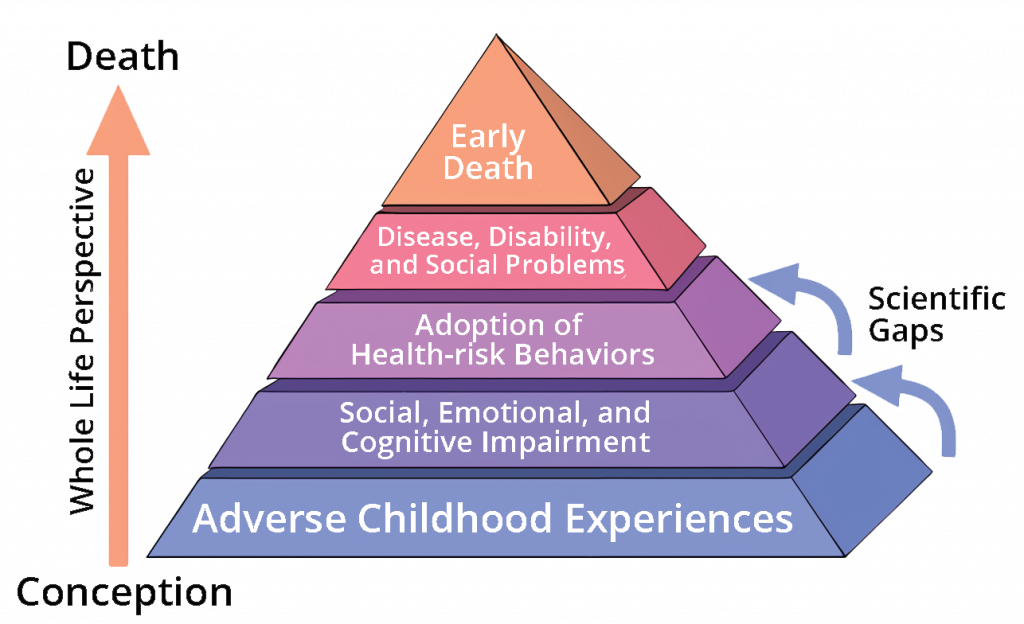ACEs
Diana Lang
Adverse Childhood Experiences (ACEs)
The term Adverse Childhood Experiences (ACEs) is defined as a traumatic experience that happens to someone before the age of 18 years that the person “recalls” as an adult.[1]
ACEs can include sexual, psychological, or physical abuse. ACEs have been linked to premature death and various health conditions and risks.[2]

To determine your own ACEs score, visit this website to take the Adverse Childhood Experiences Quiz.
Several studies have shown that ACEs are associated with health-related risk factors such as substance abuse, risky sexual behavior, obesity, cardiovascular disease, cancer, and diabetes.[3] Having multiple ACEs is an important risk factor for several unfavorable health outcomes, including early death. The research suggests that the impact of these adverse experiences in childhood on adult health status is strong and cumulative.[4]
Best-practice recommendations for preventing ACEs entail reducing child abuse and neglect by:
- Strengthening economic supports for families,
- Supporting parents via education about positive parenting techniques,
- Providing high-quality care and education immediately following a child’s birth,
- Improving parenting skills to enhance healthy child development and well-being, and
- Providing early interventions to reduce adverse effects and to prevent future risks.[5]
Watch Dr. Bruce Perry talk about reducing the effects of trauma.
Additional video examples can be viewed on the CDC’s YouTube channel.
Watch Dr. Dan Siegel discuss the brain’s ability to repair after trauma.
Center for Disease Control and Prevention: Adverse Childhood Experiences Handout [PDF]
Center for Disease Control and Prevention: Adverse Childhood Experiences website
More information will be addressed within the Child Abuse, Neglect, and Corporal Punishment content.
- Centers for Disease Control and Prevention. (2019). About adverse childhood experiences. https://www.cdc.gov/violenceprevention/childabuseandneglect/acestudy/aboutace.html ↵
- Center on the Developing Child at Harvard University. (n.d.). What are ACEs? And how do they relate to toxic stress? https://developingchild.harvard.edu/resources/aces-and-toxic-stress-frequently-asked-questions/ ↵
- Ximenes, R. de B. B., Ximenes, J. C. M., Nascimento, S. L., Roddy, S. M., & Leite, Á. J. M. (2019). Relationship between maternal adverse childhood experiences and infant development: A systematic review (protocol): A systematic review (protocol). Medicine, 98(10), e14644. https://doi.org/10.1097/MD.0000000000014644 ↵
- Ximenes, R. de B. B., Ximenes, J. C. M., Nascimento, S. L., Roddy, S. M., & Leite, Á. J. M. (2019). Relationship between maternal adverse childhood experiences and infant development: A systematic review (protocol): A systematic review (protocol). Medicine, 98(10), e14644. https://doi.org/10.1097/MD.0000000000014644 ↵
- Centers for Disease Control and Prevention. (2020). Prevention Strategies. Washington, DC: U.S. Department of Health and Human Services, Children’s Bureau. https://www.cdc.gov/violenceprevention/childabuseandneglect/acestudy/prevention.html ↵

